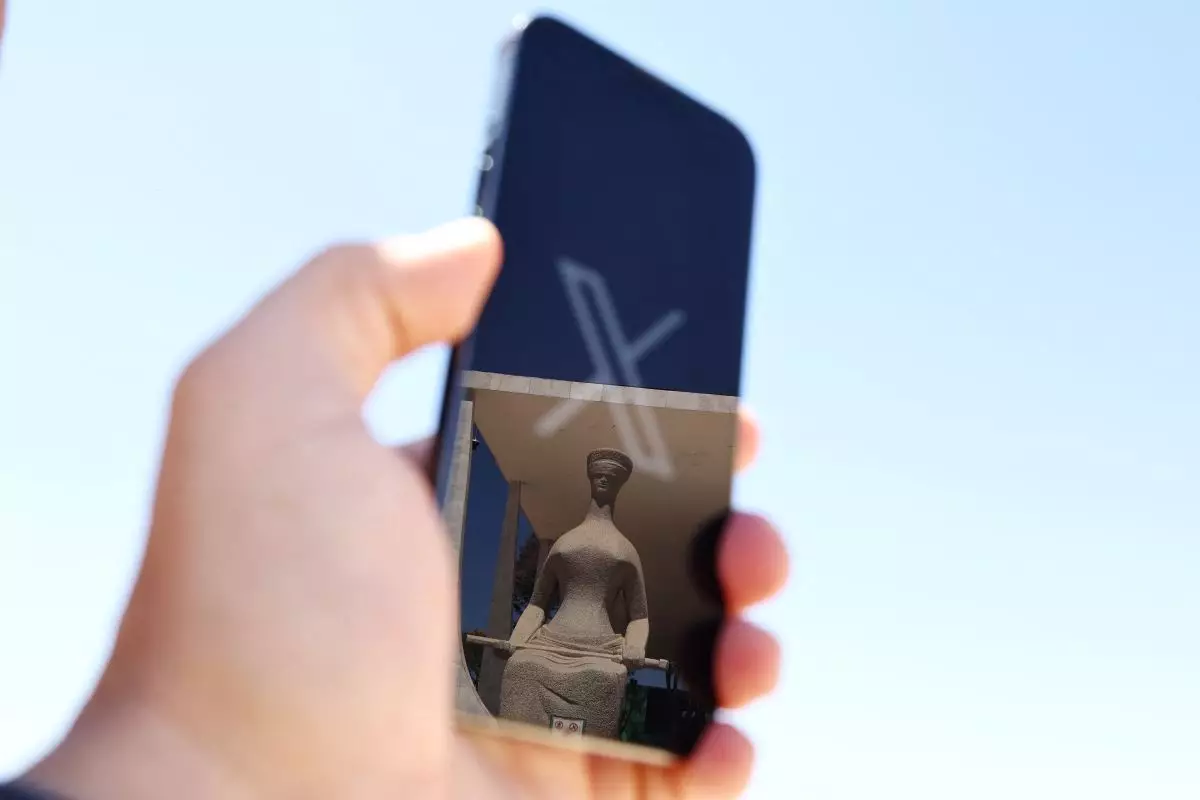The ongoing confrontation between Elon Musk and Brazil’s judicial system has erupted into a significant event in the realm of social media governance. Brazil’s telecommunications regulator recently announced the suspension of access to Musk’s social media platform, X (formerly known as Twitter), following a court ruling that pointed to non-compliance with local regulations. This startling move not only highlights the struggle between private digital platforms and government authority but also raises ethical questions about censorship and the power dynamics involved in global technology management.
The source of this conflict lies in a prolonged standoff between Musk and Supreme Court Justice Alexandre de Moraes, who issued mandatory compliance directives that Musk claims encroach upon free speech. The insistence on appointing a legal representative in Brazil, among other compliance demands, has thrown X into a precarious position. Musk’s vehement declarations of censorship have sparked a heated discourse on the balance between user freedoms and necessary oversight in the digital domain.
As the situation unfolds, it has exposed a critical intersection of legality and technology. Brazil’s Supreme Court holds unique powers, enabling judges to make individual rulings that have immediate nationwide impact. This authority has become apparent in the current conflict, leading to sweeping operational restrictions on X. Moraes insists that the regulation of social media platforms is essential to combat hate speech and misinformation—a sentiment echoed by many who worry about the consequences of unrestrained digital discourse.
However, Musk’s predicament is not merely about compliance; it also involves the fundamental rights of his users. The billionaire entrepreneur has branded the judicial measures as overly draconian, arguing that they pose a threat to freedom of expression. This ideological clash reflects a broader narrative about who gets to dictate the terms of engagement in the digital space—governments or technology leaders.
Musk’s characterization of Brazilian authorities as oppressive agents—referring to President Luiz Inacio Lula da Silva as a “lapdog” of Moraes—illustrates his aggressive defensive posture. Such remarks reveal the high stakes involved, not only for X, but also for the opening up of broader dialogues around digital rights and responsibilities. As Musk battles against Brazilian authorities, ramifications ripple through the tech ecosystem. The judicial suspension could obstruct X’s foothold in one of its most significant markets, especially crucial at a time when advertising revenues are dwindling.
Moreover, the influence of the judiciary isn’t limited to direct restrictions on the platform itself. For instance, Starlink—a satellite internet service owned by Musk—has faced setbacks, including frozen bank accounts. These absences of financial fluidity can threaten operations not just in Brazil, but by extension, across markets where regulatory oversight is similarly stringent. The situation is exacerbated by contradictory expectations in different jurisdictions, making global compliance a complex puzzle for tech companies.
Public opinion vacillates between supportive and critical perspectives on the actions of Justice Moraes. Many argue that measures like these are warranted given the potential for social media to spread harmful content and disinformation. However, Musk’s supporters view the suspension as a blatant overreach, deeming the act a direct assault on free speech. The discourse surrounding this clash is reflective of broader societal concerns regarding digital governance and personal autonomy.
In response to the current tensions, Moraes has expressed the necessity of accountability in digital communications. His view aligns with a growing global scrutiny on how social platforms operate, notably in terms of content moderation standards. Yet, by enforcing these standards independently, the judiciary risks setting a precedent that blurs the lines between regulation and censorship.
As the legal and political drama unfolds, the consequences for the future of social media in Brazil remain uncertain. While Musk maintains that X is essential to the dissemination of truthful information, the judiciary’s insistence on regulatory frameworks may signal a growing acceptance of oversight in digital communication. The fight for compliance and operational autonomy may very well become the litmus test for future tech ventures in Brazil and beyond.
While it is evident that the stakes are high, the outcome of this confrontation will likely shape the larger conversation around the intersection of technology, governance, and individual rights. In an era where digital discourse is irrefutably influential, the implications of this clash extend far beyond Musk or X alone, reverberating through global discussions on technology and ethics. The urgency of finding a balanced dialogue between innovation and regulation has never been more pressing, as both sides seek their version of the truth in an age of unprecedented connectivity.


Leave a Reply